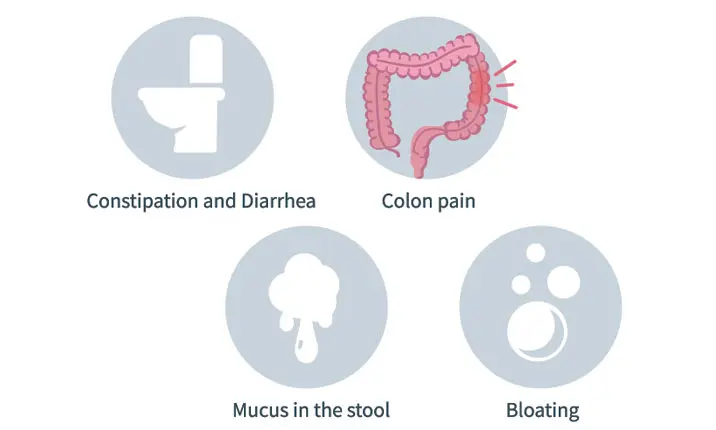Stress comes in many forms. It can be acute (short-term) or chronic (long-term). It can be triggered by an everyday event (eg. a big presentation at work), a traumatic life event (eg. death in the family), or even by nothing obvious at all. And it won't always be a conscious thing – in fact, you might be stressed and not even realise it.
Some people dismiss the experience of stress and pretend everything is OK. But if it starts to get overwhelming and you see signs of a serious health problem, you should always seek medical advice.
Here are 5 common health problems related to stress.
Heart disease
When you're in a seriously stressful situation, your heart rate speeds up, you breathe faster, your muscles tense and your hands get sweaty. This is your body's natural response to stress – fight or flight – and it's caused by the release of hormones, which includes cortisol and adrenaline, in your body.
But what about chronic stress? What effect does that have on your heart?
Chronic stress and heart disease
While a connection has yet to be scientifically proven, initial studies suggest that chronic stress and an unhealthy level of stress hormones may contribute to heart disease.
Inflammation of the heart muscle
Persistent stress may contribute to inflammation in the circulatory system, particularly in coronary arteries. Inflammation in the arteries is a key culprit behind the build-up and rupture of plaque in artery walls and subsequent heart attacks.
Blood pressure spike
When you are stressed, your body produces an influx of hormones that cause your heart to beat faster and your blood vessels to narrow. This results in a temporary spike in your blood pressure. When this occurs frequently, damage to your blood vessels, heart and kidneys result.
Other risk factors for heart disease
Stress can make you feel like wanting to overeat, smoke or skip out on exercise – all of which are risk factors for heart disease.
Irritable bowel syndrome (IBS)
IBS is a common chronic disorder that affects the large intestine, causing cramping, pain, bloating, and diarrhoea or constipation. Flare-ups can be caused by several different factors, and many people with the condition find that stress is one of them.
In fact, almost 60% of people with IBS meet the criteria for a psychiatric disorder such as anxiety or depression. IBS sufferers frequently experience mood disorders such as anxiety or depression. Some of the mood disorders may also arise because of poorly controlled IBS symptoms.
Stress and irritable bowel syndrome (IBS)
So, what's the link? Well, stress has been linked to increased movement and sensitivity in the intestines. As the pain pathways in our central nervous systems are linked to our gut processes, external stressors can trigger unpleasant bowel symptoms. There is also evidence to show that stress and mood disorders can alter our gut microbiome and affect our immune system, both of which are important for proper gut function.
How to relieve stress and manage IBS symptoms
If you have IBS, finding ways to relieve stress may help you to manage your condition and improve your quality of life. Getting a good sleep and having a work-life balance is a good start to managing IBS symptoms.
Tension headaches
Do you have a dull pain in your head or neck, like a clamp around your skull? This is a classic sign of a tension headache. An occasional tension headache is usually set off by a single stressful event, but if you suffer from chronic stress, you may also get chronic tension headaches. This cycle of pain itself is a big stress factor, and can make the stresses of daily living feel even worse.
High blood sugar
When you feel stressed, your body wants to make sure you have enough energy to deal with the cause of stress. So, it releases more glucagon and adrenaline, as well as glucose, from your liver. Insulin levels fall, and growth hormones and cortisol levels rise, which makes your body less sensitive to the insulin you do have.
Stress and high blood sugar levels
This means more glucose is available in your blood stream, and you have higher blood sugar levels.
Consistently high blood sugar levels can wreak havoc on your health, with symptoms including:
- Increased thirst and urination
- Blurred vision
- Light-headedness
- Flushed skin
- Restlessness
This means more glucose is available in your blood stream, and you have higher blood sugar levels. Consistently high blood sugar levels can wreak havoc on your health, with symptoms including increased thirst and urination, blurred vision, light-headedness, flushed skin and restlessness.
Some studies go so far as to suggest extreme stress can increase your risk of developing diabetes. One found that men with prolonged stress have a 45% higher risk of developing the condition.
Alzheimer's disease
Doctors are yet to prove the connection between stress and Alzheimer's disease, but stress is thought to cause inflammation of the brain, making it more susceptible to health issues in general.
Stress and depression
Stress is also associated with depression, which is known to increase the risk of developing Alzheimer's.
In addition, one study found that stressful life experiences (eg. being fired, declaring bankruptcy, death of a parent or financial loss) can each age the brain by around 1.5 years, with age obviously being a contributing factor in the onset of the condition.
Common cold
Stress can alter the immune system and result in changes to the ability of the immune system to fight off infections. Changes to the immune system may also result in the release of compounds that are related to inflammation. These changes increase the risk of catching a cold.
People who are under severe, long-term stress (lasting more than a month) are more likely to catch a cold when exposed to a virus than people under milder stress.
Obesity
People who are stressed tend to turn to "comfort eating" where they indulge in foods that are high in fat and sugar, in an attempt to make themselves feel better. This habit of overeating when stress increases the risk of the person developing obesity.
Research has also shown that those with persistent high levels of the stress hormone cortisol weighed more, had a higher body mass index (BMI) and a larger waist compared with those who had low levels of the hormone.
Depression
Too much stress can lead to major depression in people who are susceptible to the condition. When you have trouble coping with difficult life situations, chronic stress can wear you down and overwhelm you. This is again due to erratic levels of hormones, including cortisol, serotonin and dopamine, which leads to a persistent stress response that can result in depression.
Neglecting healthy lifestyle practices when you are stressed, such as drinking more than normal and skipping exercise, can also increase the risk of major depression.
Sleep dysfunction
Stress may cause several types of sleep disorders:
Insomnia
Insomnia is difficulty with falling asleep and staying asleep or with overall sleep quality. This occurs despite adequate time allotted for sleep and a comfortable place to sleep. Persistent stressors, such as problems at work, family difficulties, death of a loved one and major illness can contribute to chronic insomnia.
Short-term stressors can also bring short-term insomnia symptoms. These symptoms would usually be resolved once the stressful situation ends. However, some people may fall into a vicious cycle of sleep loss and daytime anxiety about sleep that snowballs into chronic insomnia.
Sleep apnoea
Sleep apnoea is a disorder where there is a recurring collapse of the upper airway during sleep. This causes heavy snoring and choking episodes along with excessive daytime sleepiness and other daytime impairments. Chronic stress can cause conditions such as hypertension, heart disease, obesity and diabetes, which are in turn risk factors for sleep apnoea.
Neck and shoulder pain
When a person is stressed, the body prepares itself to give a stress response. This response can cause physical changes in the body. Stress affects the neck and shoulders in several ways:
- Enlarges the blood vessels in the large muscle groups to allow faster oxygen delivery
- Causes you to clench and tighten muscle in the neck, jaw and shoulders
- Increases tension in the muscles that run across the back of your back
- Restricts neck and shoulder movement
- Heightens your perception of pain and makes existing pain feel worse
What can you do to help minimise stress?
- Do something fun: Take a day to yourself to do an activity you enjoy, whether it's reading, going for a walk or getting a massage.
- Meditate: Sit or lie down, relax, breathe naturally and focus on what you are doing and how your body moves as you breathe.
- Write: Put down on paper what's bothering you and how it makes you feel.
- Exercise: Exercising lowers stress hormones. Try to find something you enjoy, whether that's dancing, running, swimming, yoga or something else.
- Talk: Try to put your thoughts into words. If you're uncomfortable finding someone you trust to do this with, speak to your doctor about a referral to a therapist.
Whatever you do, don't let stress consume your life. Reach out to a doctor if you need more advice or tips on how to minimise its impact on your happiness.























